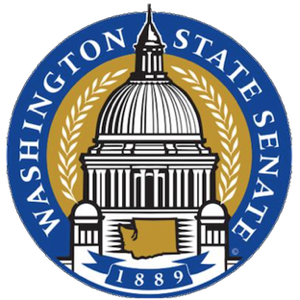The Washington State Senate Labor and Commerce Committee (WA Senate LC) considers issues relating to labor issues, including unemployment insurance, industrial insurance/workers’ compensation, prevailing wage, collective bargaining, worker rights and benefits, and the Washington Cares Act. The committee also considers commerce issues, including the regulation of certain professions and businesses, and alcohol, tobacco, and cannabis.
Public Hearing
Executive Session
- SB 5080 - “Expanding and improving the social equity in cannabis program.” (added Jan 26)
- SB 5123 - “Concerning the employment of individuals who lawfully consume cannabis.” (added Jan 26)
- SB 5376 - “Allowing the sale of cannabis waste.” (added Jan 26)
- SB 5405 - “Modifying the liquor and cannabis board's subpoena authority.” (added Jan 26)
